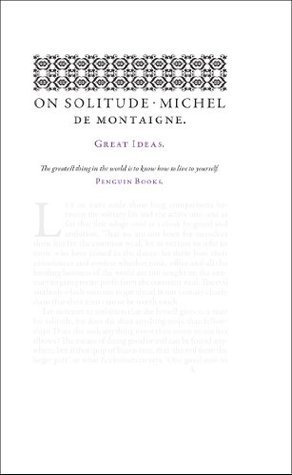What do you think?
Rate this book


130 pages, Kindle Edition
First published November 1, 1580
in solis sis tibi turba locis.
[in lonely places, be a crowd unto yourself.]
Tibullus, IV, xiii, 12 (adapted).
There is nothing more unsociable than Man, and nothing more sociable: unsociable by his vice, sociable by his nature.
Quid terras alio calentes
Sole mutamus? patria quis exul Se quoque fugit?
[Why do we leave for lands warmed by a foreign sun? What fugitive from his own land can flee from himself?]
Horace, Odes, II, xvi, 18–20. (The ideas in general are indebted here to Seneca.)
If you do not first lighten yourself and your soul of the weight of your burdens, moving about will only increase their pressure on you, as a ship’s cargo is less troublesome when lashed in place… It is our own self we have to isolate and take back into possession.
Rupi jam vincula dicas: Nam luctata canis nodum arripit; attamen illi, Cum fugit, a collo trahitur pars longa catenæ.
[‘I have broken my chains,’ you say. But a struggling cur may snap its chain, only to escape with a great length of it fixed to its collar.]
Persius, Satires, V, 158–60.
We take our fetters with us; our freedom is not total: we still turn our gaze towards the things we have left behind; our imagination is full of them.